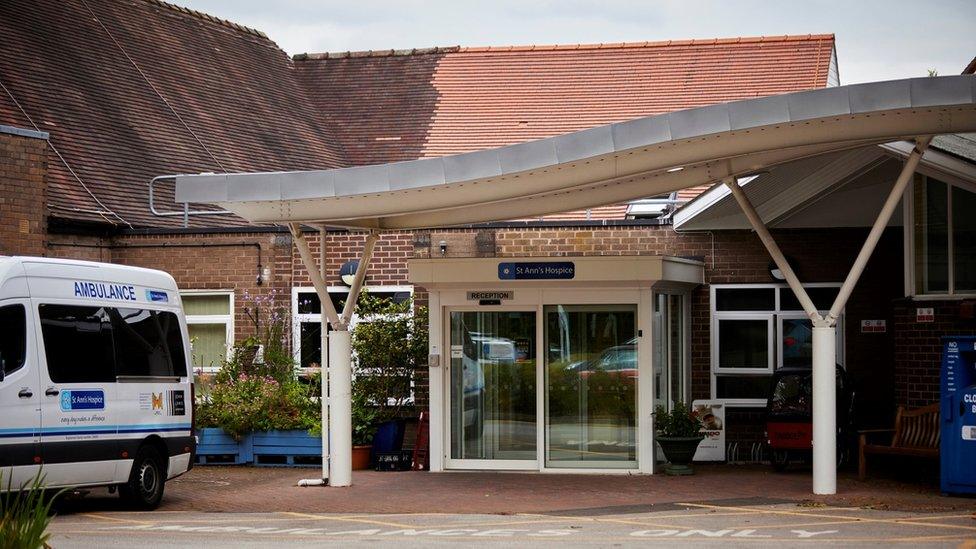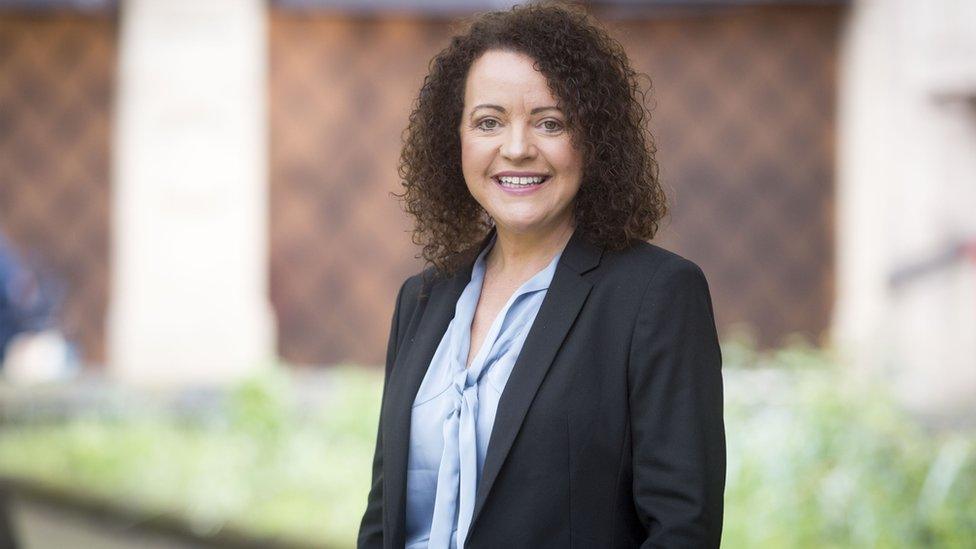Hospice mulls bed reduction to meet 'astronomical' energy costs
- Published

Energy costs for the hospice's sites at Heald Green and Little Hulton have risen by £320,000 in two years
A hospice is considering cutting the number of beds for end-of-life care after its energy bills almost doubled.
St Ann's Hospice runs two sites in Greater Manchester for people living with life-limiting illnesses.
Chief executive Rachel McMillan said utility costs topped £200,000 this year and were estimated to hit an "astronomical" £450,000 next year, which is "keeping me awake at night".
A government spokesman said help was being provided for rising energy costs.
'Unpalatable decisions'
Ms McMillan, a former nurse who has worked for the hospice for 11 years, said she is having to "think seriously about we can do to keep going" and make "tough decisions" to get through these "really hard times".
Next year's projection of £450,000 will mean the hospice has seen a "huge" £320,000 increase in energy costs over two years at its sites in Heald Green, Stockport, and Little Hulton, Salford, she said.
"We've got to raise in excess of £20,000 every single day just to keep our doors open."
She said it was "unpalatable" but she "would have to think about" potentially restricting the number of beds at the hospice, which has been running for more than 50 years.

Rachel McMillan said ministers should visit their local hospices to understand the challenges they face
"It's awful if that's something we have to do but it is something we're going to have to seriously think about."
Ms McMillan said government funds only provide a third of the hospice's income and the rest is found through fundraising.
A government spokesman said: "We understand the pressures hospices face with rising energy bills and we've continually taken action to help with costs.
"We are delivering the Energy Bill Relief Scheme which means some public and voluntary sector organisations, including hospices, may pay less than half the predicted wholesale cost of energy this winter."
Ms McMillan said she is waiting to find out if the government's scheme will extend past March.
She invited government ministers to visit their local hospices to "really understand what the challenges are and the consequence and impact if we don't survive".

Why not follow BBC North West on Facebook, external, Twitter, external and Instagram, external? You can also send story ideas to northwest.newsonline@bbc.co.uk, external